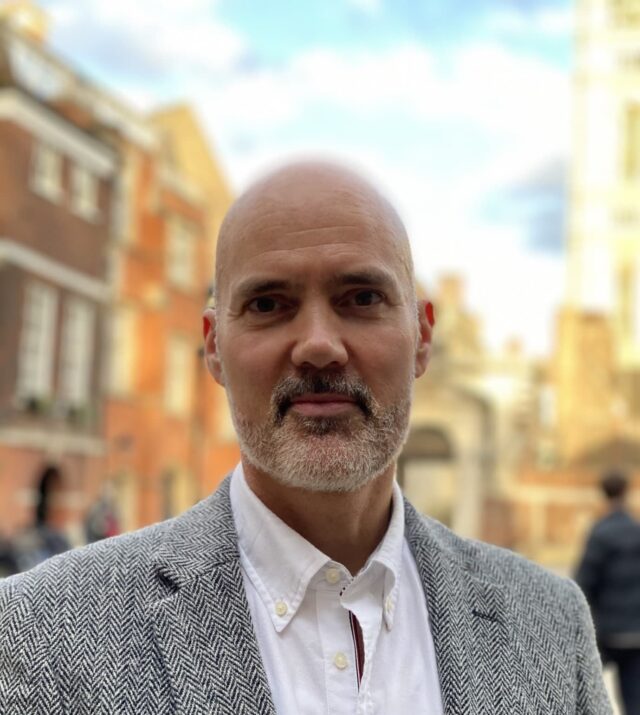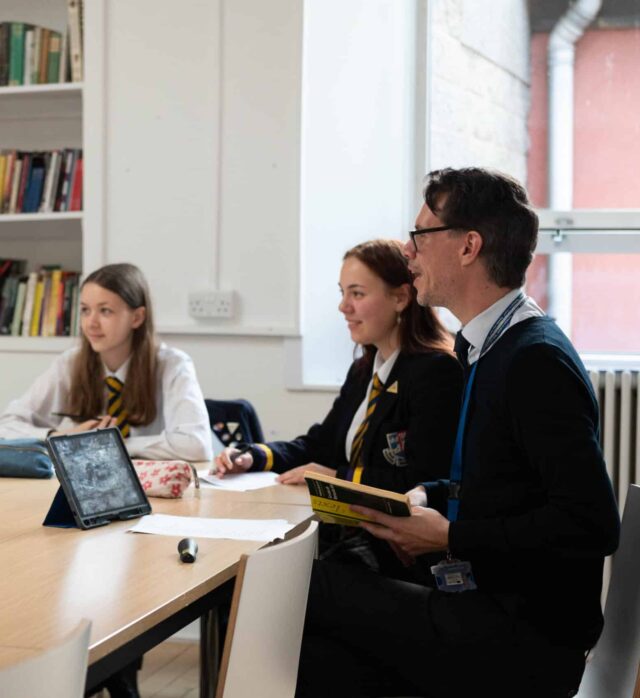Blog
Talk to the Heart

Dr Sander Berg
Head of Modern Languages, Harrow School
Read the blog
Pupils often ask me how many languages I speak. I sometimes tell them: ‘Two – Germanic and Romance.’ And it is true that once I had made the effort of learning French, Spanish was less of a challenge. And with those two under the belt, Portuguese and Italian were not so hard either, more a question of calibrating. I also find it easy to switch between them, like talking different versions of the same tongue. It seems that learning foreign languages follows Moore’s law in reverse – every next language requires less computing power.
Sometimes I get asked what I plan to learn next. Chinese? Arabic? And when I say Basque or Welsh —more a pipe dream than an actual intention, to be honest — they look at me in horror. What is the use of that? Who even speaks that? To which I quip that with the languages I already speak, I hardly risk running out of people to talk to. The truth is, I would love to be fluent in Chinese and Basque, Arabic and Welsh. Learning any language is worth it.
Last Spring in Riga, I met a German who spoke Latvian like he is a native. Well, almost. He is a singer-songwriter and represented his adopted homeland at the Eurovision Song Contest. That ancient Indo-European language of 1.2 million speakers at the edge of Europe is meaningful to him. He also speaks perfect English, impressive Dutch and probably some Swedish, French and Spanish as well. An exceptional polyglot. Or is he?

We forget that it is far more normal to be multilingual than we might assume. Languages change over time; they break up into dialects and other languages; they travel and migrate, intersect and overlap. The result can be a dizzying array of linguistic diversity in one geographic area. Take West Africa, where many hundreds of languages are spoken. In such regions multilingualism is the norm. An educated Senegalese, for example, will be able to converse in French, Wolof and at least one of the other languages (Mandinka, Jola, Serer, etc.).
The world’s major languages are all the result of empire. Sometimes the imperial language has succeeded in replacing the original languages, often aided by genocide, disease and centuries of occupation. But not always. After millennia of on and off central rule, China still has a variety of different dialects and languages.
Some empires are known for their multi-ethnic and multilingual make-up, like the Ottoman Empire and Austria-Hungary. You might wonder why not everybody ended up speaking Turkish or German. Surely that would have benefited everyone. But language is strongly linked to cultural identity, which people are loath to give up. After all, why would a Greek, a Syrian, a Slovak or a Czech stop speaking their ancestral language and sever their ties with their community, their history?

In modern Europe we tend to associate a language with a nation-state. In Poland they speak Polish, in Sweden Swedish, etc. But most countries have linguistic minorities. Even a small nation like the Netherlands has a Frisian-speaking minority, and tiny Luxembourg is trilingual. In France there are speakers of Occitan, Catalan, Basque, Breton, Flemish and Alsatian, not to mention the many languages spoken by immigrants.
Mandela once said: ‘If you talk to a man in a language he understands, that goes to his head. If you talk to him in his language, that goes to his heart.’ Except, of course, that he never said it. Not in such general terms anyway. Still, it is a good maxim because it holds an essential truth.
With the rise of global English, it remains important to be willing to learn other languages, or better put: the language of the Other. In linguistic terms, native speakers of English may appear to be at an advantage, but global English will never replace other languages. For non-native speakers, it is above all a lingua franca, a tool, a means to an end. To understand other people, other cultures, other ways of thinking, you need to learn their language. A language is a repository of cultural knowledge and knowing it gives you access in a way that you cannot achieve otherwise. Knowing two languages means you can build bridges between two communities.

The UK is notorious for being a nation of monoglots, but we are missing a trick here. The fact that there is no one obvious language for us to learn means that we have a choice. It matters little which language we choose to learn so long as it matters to us. Whichever language we study, we never risk running out of people to speak to. And what is more, we can learn to speak not only to our interlocutor’s head but to their heart.


